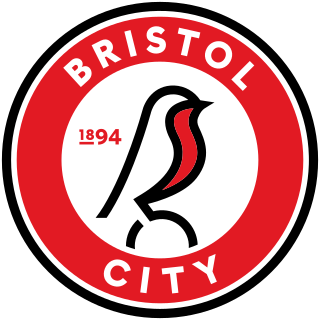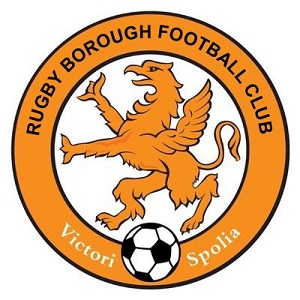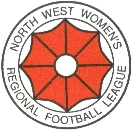
Craven Cottage is a football stadium in Fulham, West London, England, which has been the home of Fulham since 1896. The ground's capacity is 24,500; the record attendance is 49,335, for a game against Millwall in 1938. Next to Bishop's Park on the banks of the River Thames, it was originally a royal hunting lodge and has a history dating back over 300 years.

Fulham Football Club is a professional football club based in Fulham, West London, England. The club competes in the Premier League, the top tier of English football. They have played home games at Craven Cottage since 1896, other than a two-year period spent at Loftus Road whilst Craven Cottage underwent redevelopments that were completed in 2004. They contest West London derby rivalries with Chelsea, Queens Park Rangers, and Brentford. The club adopted a white shirt and black shorts as its kit in 1903, which has been used ever since.

Rachel Elizabeth Unitt is a former English footballer who last played for FA Women's Championship club London Bees. After beginning her club career with Wolves, Unitt began a long association with Everton in 2000. This was intersected by a three-year spell at Fulham between 2001 and 2004 and a summer on loan to New Jersey Wildcats in 2005. She left Everton in 2012 for a two-year stint at Birmingham City and later played for Notts County in 2014. A sturdy left back, Unitt has won over 100 caps for the England women's national football team since her debut in August 2000. She represented England at the 2001, 2005 and 2009 editions of the UEFA Women's Championship as well as at the FIFA Women's World Cup in 2007 and 2011. She was ruled out of both the 2013 UEFA Women's Championship and the Great Britain squad for the 2012 London Olympics due to injury. In 2004 and 2006 Unitt was named The Football Association's (FA) International Player of the Year. In 2016, she was inducted into the English Football Hall of Fame at the National Football Museum.
Birmingham City Women F.C. is an English women's football club affiliated with Birmingham City F.C. As founding members of the FA Women's Super League in 2011, the team currently plays in the second-highest division of women's football in England. The team plays their home games at St Andrew's, the home of Birmingham City F.C.

Doncaster Rovers Belles Ladies Football Club, previously Doncaster Belles, is an English women's football club that currently plays in the FA Women's National League Division One North, the fourth tier of women's football in England. The club's administration is based at their home ground of Eco-Power Stadium in Doncaster, South Yorkshire.

Everton Football Club is an English women's association football team based in Liverpool, England, that competes in the FA Women's Super League, the top division of English women's football. Formed in 1983 as Hoylake W.F.C., it is now part of Everton F.C. and has played home games at Walton Hall Park in Walton since February 2020. The team has won the Premier League National Division once, the Premier League Cup once, and the Women's FA Cup twice.

Bristol City Women's Football Club is a women's association football team from the city of Bristol. Formed in 1998 as Bristol Rovers W.F.C., they were renamed Bristol Academy W.F.C. in 2005 following the withdraw of support from Bristol Rovers and increased involvement and academy development from Bristol Academy of Sport, part of South Gloucestershire and Stroud College. A second change of name, this time to Bristol City was approved by the FA Women's Football Board in time for the 2016 WSL season. With their home games relocating from SGS College’s Stoke Gifford Stadium to the Robins High Performance Centre and now Ashton Gate Stadium. Bristol City Women won promotion to the FA Women's Super League (WSL), the highest level of the women's game in England in 2016 and stayed there for five seasons before being relegated to the FA Women's Championship in 2021.
Gwalia United is a Welsh women's football club playing in the FAWNL Southern Premier Division. The club was renamed Gwalia United prior to the start of the 2024–25 season. Prior to this, the club was most recently called Cardiff City Ladies F.C. but has also played as Llanedeyrn L.F.C., Inter Cardiff F.C. and Cardiff County L.F.C.

Liverpool Football Club, commonly referred to as Liverpool or Liverpool Football Club Women if distinguishing themselves from the men's team, is a professional English women's football team based in Liverpool, Merseyside, England. They have served as the official women's division of Liverpool Football Club since 1994. Founded in 1989 as Newton LFC and subsequently renamed Knowsley United WFC, Liverpool Ladies and Liverpool FC Women over the years. The club was a founding member of the top-tier Women's Super League in 2011. A year later, Liverpool became the first English football club to offer every female player full-time professional contracts. This decision pioneered the professionalisation of women's football in England and led to Liverpool winning back to back Women's Super League titles in 2013 and 2014. In 2022, they also won the FA Women's Championship, earning promotion back to the Women's Super League, having done so three times previously in 2003–04, 2006–07, 2009–10.
Notts County Ladies Football Club was a women's football club based in Nottingham, England. They played their home games at Meadow Lane.

The Scottish Women's Football League First Division was a division in the Scottish women's football pyramid between 1999 and 2019. The second league tier from 1999 to 2015, it was later the third tier from 2016 to 2019.
The history of Fulham Football Club, an English professional football club based in Fulham, West London, dates back to the club's formation in 1879.

Luton Town Ladies Football Club is a semi-professional women's football club based in the town of Luton, Bedfordshire, England. Founded in 1997, Luton compete in the Eastern Region Women's Football League, with home games played at Sharpenhoe Road, Barton Rovers. The club are affiliated with the Bedfordshire County Football Association.

Southampton Saints Girls and Ladies Football Club, founded in 1979 as Red Star Southampton, was an English women's football club formerly affiliated with Southampton F.C.

Rugby Borough Women Football Club is an English women's football club based in Rugby, Warwickshire. Currently they play in the FA Women's National League South, the third tier of women's domestic football in England.

The 1991–92 WFA National League Premier Division was the inaugural season of nationalised women's league football in England. The Women's Football Association (WFA) obtained a grant from the Sports Council in order to launch the league, described by Jean Williams as "a crucial step in adopting the structures of the male game."

The North West Women's Regional Football League (NWWRFL) is one of the eight English regional leagues comprising the fifth and sixth tiers of the English women's football pyramid. The other seven leagues are the North East, East Midlands, West Midlands, Eastern, London and South East, South West and Southern. The NWWRFL includes teams from several counties in the north west of England. Broadly, these are Cumbria, Lancashire, Greater Manchester, Merseyside, Cheshire, Shropshire and Staffordshire.
The Greater London Women's Football League is an amateur competitive women's association football competition based in Greater London, England. The league is affiliated with the Amateur Football Alliance, Middlesex County Football Association, and London Football Association. Matches are played on Sundays.
Wem Town Ladies Football Club is a women's semi-professional association football club from Wem, and affiliated to the men's team of the same name. They play in the Butler Sports Center. The club are a part of The New Saints F.C. foundation and share close links with the other sections of the club. Until 2020, they were known as The New Saints of Oswestry Town & Llansantffraid Ladies Football Club due to their partnership with the Cymru Premier side.
The 2020–21 FA Women's National League was the 29th season of the competition, and the third since a restructure and rebranding of the top four tiers of English football by The Football Association. Starting in 1992, it was previously known as the FA Women's Premier League. It sits at the third and fourth levels of the women's football pyramid, below the FA Women's Championship and above the eight regional football leagues.













